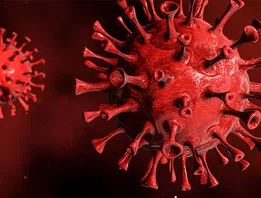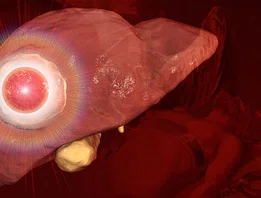


Outcomes Research
Telehealth video visits during the COVID-19 pandemic –a glimpse into the future?
The onset of the COVID-19 pandemic in March 2020 affected regular patient care worldwide. Prior to the pandemic, almost all 40,000 ambulatory visits to the Houston Methodist Cancer Center were in person. In an effort to provide medical care while maintaining social distancing, the Houston Methodist Cancer Center offered telemedicine video visits via the Houston Methodist MyChart video platform to its hematology and oncology patients.
Jenny C. Chang, MD, the Emily Herrmann Chair in Cancer Research, Director of the Dr. Mary and Ron Neal Cancer Center and Professor of Medicine in Oncology at the Houston Methodist spearheaded a prospective study in which 1,762 patients with cancer were offered telehealth video visits of which 83.8% participated. Out of these, 92.6% were satisfied with the telehealth video visits. Additionally, most physicians (65.2%) were satisfied and 74% indicated that they would like to continue using telemedicine in the post-COVID era. Demographics and patient characteristics were compared between the patient groups that participated and those that declined telemedicine video visits. The latter group were typically older, belonged to lower-income households, and were underinsured.
Prior to COVID-19 pandemic, ambulatory visits were 100% in person


COVID-19

Telehealth visits were adopted
0
patients were offered telehealth services
Overall, physicians were satisfied with My Chart video visits
Old-age
0
patients participated
65.2%
Number of physicians who were satisfied:
Lower income
92.6%
Number of patients who were satisfied:
74%
Number of physicians who indicated they would use telemedicine in future:
Underinsured
Telemedicine becomes a critical part of medical care in the post-COVID era?
Overall, both patients and physicians were satisfied with telemedicine video visits. One major concern for physicians was the importance of physical examination of hematology and oncology patients – including examination of liver, spleen, breasts, lymph nodes and palpation of tumors. Myriad modern tools are currently being developed to address this concern – and this list encompasses smart devices such as AppleHealth/GoogleFit, Withings Smart Devices, Tytocare Remote Exam Kit, and Hexoskin. This study published in JCO Oncology Practice in 2022, underscores the opportunities for further developing telemedicine to provide effective medical care to cancer patients that are elderly and from lower income households in the future.
According to Chang, “The current health crisis will accelerate the needed improvements in patients’ access to care in vulnerable populations, such as those with cancer, the elderly , and patients with lower economic income. Implementation of more accessible telehealth visits may also decrease the health disparities observed between rural and urban communities and facilitate the care of patients who have transportation restrictions or who need specialized medical assessments. We believe that the COVID-19 pandemic is presenting us with a unique opportunity to expand the use of telemedicine as a critical part of state-of-the-art medical care.”
Jorge G Darcourt, Kalia Aparicio, Phillip M Dorsey, Joe E Ensor, Eva M Zsigmond, Stephen T Wong, Chika F Ezeana, Mamta Puppala, Kirk E Heyne , Charles E Geyer , Robert A Phillips , Roberta L Schwartz , Jenny C Chang. Analysis of the Implementation of Telehealth Visits for Care of Patients With Cancer in Houston During the COVID-19 Pandemic. JCO Oncol Pract. 2021 Jan;17(1):e36-e43. doi: 10.1200/OP.20.00572. Epub 2020 Oct 7.
The authors of the study acknowledge the Ting Tsung and Wei Fong Chao Foundation and John S. Dunn Research Foundation for supporting the time and effort spent by Dr Stephen T. Wong on this project.
Abanti Chattopadhyay, PhD, April 2022
Related Articles







